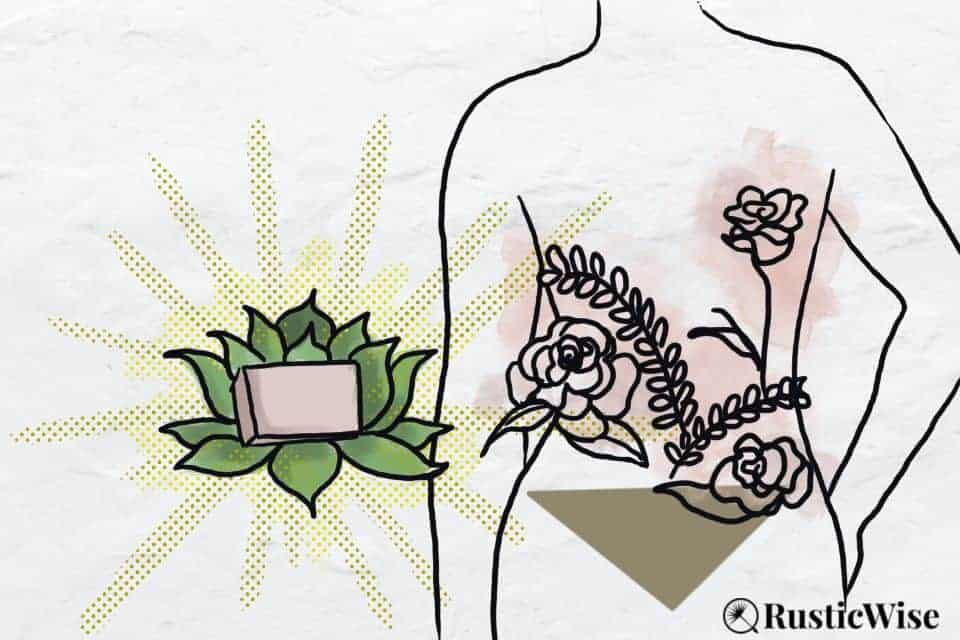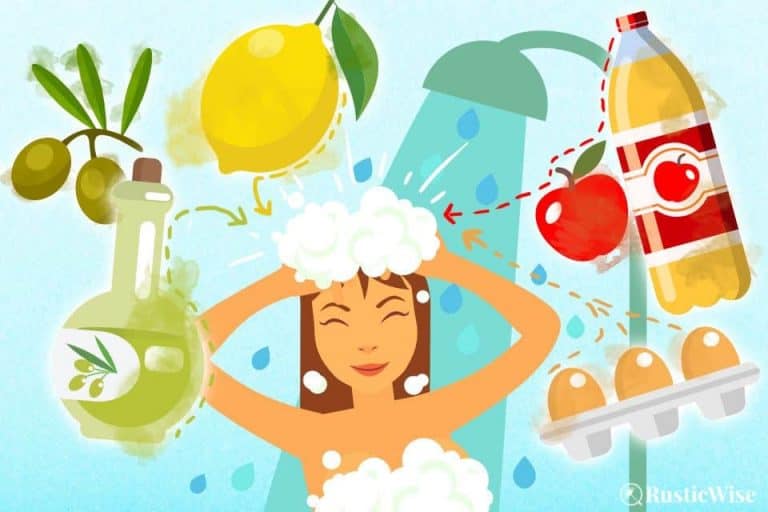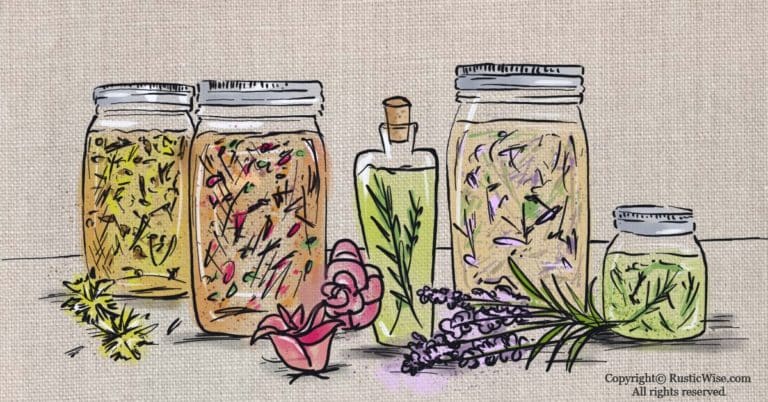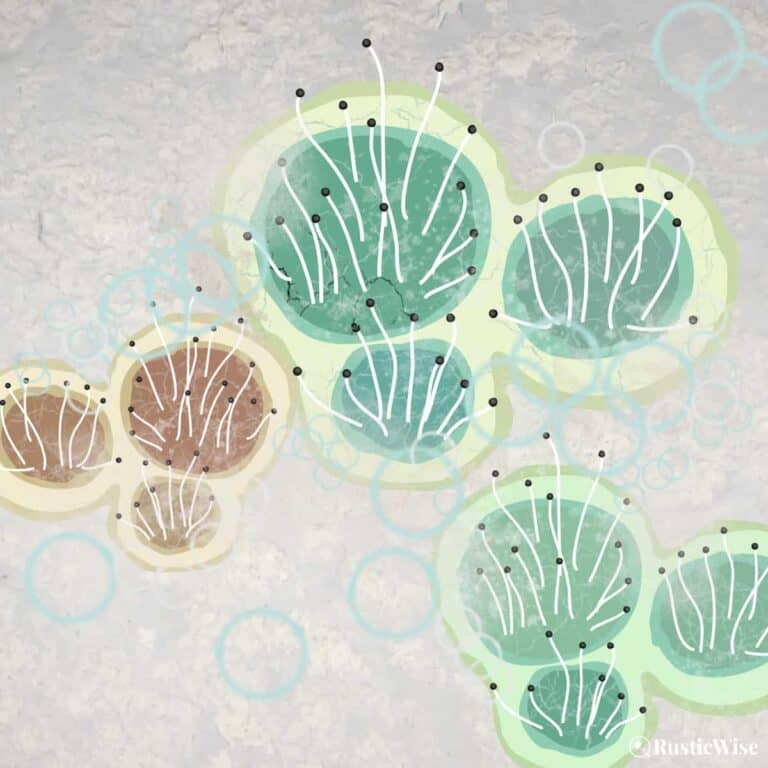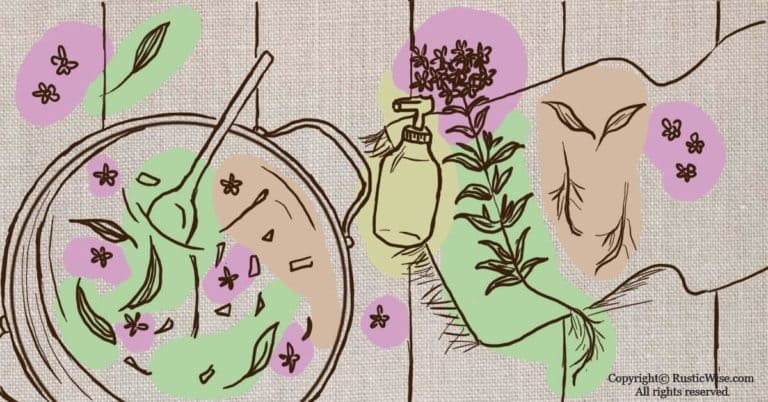What Is Yoni Soap: Do You Really Need This for Your Lady Parts?
What is yoni soap, exactly? Yoni soap is a bar of soap that’s purportedly formulated (and marketed) to clean a woman’s vagina. But do you really need a special soap for this? According to the Mayo Clinic, all that’s needed for regular feminine hygiene is washing with warm water. Using products with synthetic chemicals, or antibacterial soaps can actually wreak havoc on the natural vaginal flora.¹
Feminine hygiene is a controversial topic with questionable practices ranging from jade eggs to vaginal steaming. Yoni bars may just be the latest trend gaining traction—just don’t believe all the hype from the companies hawking this stuff.
Read on to learn more about women’s vaginal health, how to keep yourself healthy and clean, and what type of soap (if any) you should use down there.
What is yoni soap, exactly?
The word “yoni” is a Sanskrit word for abode, source, womb, or literally, vagina. Yoni represents the symbol of Shakti the goddess.²
If you Google “yoni soap bar” you’ll quickly see a smorgasbord of offerings, with many soap bars in varying shades of pink, and some with dried flower petals sprinkled on top. If you believe everything you hear about yoni soap, it would be the greatest thing since sliced bread.
In trying to answer the question, what is yoni soap, I went down the rabbit hole of woo-woo health, and discovered some outright false claims. Many of the makers of these soap bars claim the herbal blends can provide the following yoni soap benefits:
- Vaginal tightening (seriously?)
- Eliminate odors
- Balance and restore your vagina’s natural pH
- Prevent excessive sweating
- Improve natural hormone functioning
- Fight inflammation
- Soothe itching (dried botanicals and artificial dyes may actually exacerbate itching of this sensitive body part!)
- Detoxify the womb
- Promote healing after giving birth
- Heal scars from C-sections
- Reduce pain from yeast infections
- Improve menopausal symptoms such as dryness
- Reconnect you with your feminine energy
If this sounds too good to be true, it’s because it is.
Soap is soap. Its purpose is to clean. That’s it. Any claims to do otherwise should be met with a healthy dose of skepticism.
If you have issues with vaginal discharge, itching, or unusual odors, it’s best to seek medical help. No soap can help with that. As for vaginal tightening, well, that’s actually more to do with the pelvic floor muscles, and is what Kegel exercises help with.

Female anatomy 101
When people hear the word “vagina” they generally think of the entire genital region, inside and out. But if we’re being anatomically correct, the vagina is just the inner part, the inner canal.
To be clear, you do not need to clean your vagina (which we’ll cover in the next section).
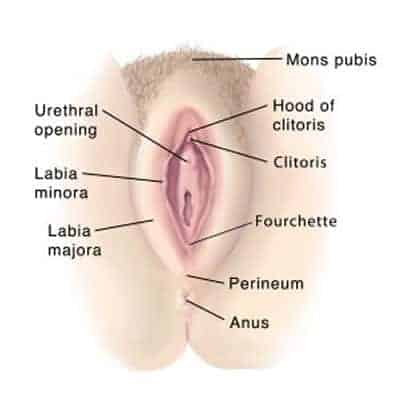
The external portion of the vagina is the vulva which includes:³
- The clitoris (and the clitoral hood called the prepuce);
- The labia (the folds of skin, also known as the “lips”). The outer lips (labia majora) and the inner lips (labia minora) protect the openings of the urethra (a short tube that connects to the bladder) and the vaginal opening;
- The fourchette (the point at which the inner folds of the labia meet at the bottom); and,
- The perineum (the area between the vaginal opening and the anus).
Cleaning the vulva daily with warm water is a good practice.
Common misconceptions about the female body
Nature is a wonderful thing, and nature designed a woman’s vagina to be self-sufficient.
In the words of obstetrician-gynecologist and pain medicine physician, Dr. Jen Gunter, “Your vagina’s a self-cleaning oven.”⁴
Here are a few common misconceptions about feminine hygiene:
Misconception: You need to clean yourself internally (via douching)
The practice of douching (cleaning a vagina internally by flushing with water, or another type of cleanser) is unnecessary. Adding anything internally can actually disrupt the body’s natural bacterial balance and allow “bad bacteria” to grow.¹
It also goes to say, don’t use yoni soap (or any other type of soap internally).
The natural pH of a healthy vagina is acidic (between 3.8 and 4.5), which naturally prevents bacteria, fungi, and parasites from growing. As a woman ages, it becomes less acidic, with a pH closer to 5.⁵
Douching makes the vagina less acidic and more prone to developing infections like vaginitis.
According to a study published in Epidemiologic reviews, “There are several ways by which douching may contribute to disease. Douching may remove normal vaginal flora, permitting the overgrowth of pathogens. It may also provide a pressurized fluid vehicle for pathogen transport, helping lower genital tract infections ascend above the cervix into the uterus, fallopian tubes, or abdominal cavity.”⁶
Douching is also associated with bacterial vaginosis (although it’s not clear which causes the other).⁶ You may also be more prone to developing a yeast infection, pelvic inflammatory disease, issues during pregnancy, STIs (inluding HIV), and overall increase in vaginal dryness or irritation.⁷
The takeaway: The vagina operates best when its natural flora is left intact. When the inner mucus layer and good bacteria are stripped away, you’re more prone to developing cuts in the skin internally (during intercourse); this leads to harmful bacteria entering the body. Save yourself the work and avoid douching.
Misconception: You should smell like a bed of roses
It’s natural and normal to have some mild vaginal odors. There’s just no way around it. Smelling like a field of roses just will not happen without using artificial fragrances, which could lead to irritation.
Vaginal discharge is also normal and is the body’s way of healthy functioning by cleansing the body of dead cells or harmful bacteria. Discharge colors typically range from clear to off-white and have a mild odor.⁸
Contact a doctor if you notice any of the following changes in vaginal discharge:
- Unusual color such as green or yellow
- Unusual texture
- Strong odor
Good hygiene practices for ladies
So now that we’ve established that you don’t need to clean internally, let’s go over a few good hygiene practices.⁹
- Wash daily with warm water. If you like, you can use a very mild soap.
- Wash from front to back around the vulva, and the perineum (the area between the vaginal opening and the anus).
- Avoid soaps or products that are scented or have artificial dyes. These may irritate sensitive skin. This also includes fragranced pads, tampons, and toilet paper.
- Wear breathable cotton underwear to allow optimal airflow.
- Avoid using artificial clothing detergents, dryer sheets, or fabric softeners, which may irritate sensitive skin.
- Dry the vulva well after swimming or showering.
- Do not douche!
Is yoni soap safe?
So whether you already bought a bar of yoni soap, or are considering buying one you see online, you may wonder, are yoni bars safe? That depends on what’s in the soap. As you know, even bars that are labelled as “natural” or “handmade” may still contain synthetic irritants.
So, check the ingredients of your soap bar!
Avoid synthetic fragrances (which contain a plethora of chemicals). Most soap labels do not list all the chemicals used in the making of a fragrance. However, the use of synthetic fragrances are simply listed as “perfume” or “fragrance.”
Avoid artificial dyes or colorants which can cause itchiness or irritation.
Avoid products with dried or embedded botanicals (such as dried flower petals) which may scratch delicate tissues around the vulva.
The takeaway: A bar of soap is only as natural as the ingredients used. Beware of colorful soaps that have likely used artificial dyes. Opt for unscented bars of soap.
Other questionable feminine products
Many feminine products out there prey on female insecurity about the so-called cleanliness or functionality of your female parts. Think twice before using the following products or practices.
- Yoni beads: While small satchels or beads containing natural herbs and botanicals sounds nice in theory, inserting them into your vagina for the recommended 24–48 hours is not recommended. Yoni beads claim to detox, reduce menstrual cramps, promote overall health, and more. Health Canada banned one maker of these miracle beads after discovering it contains borneol, a toxic substance.⁴
- Vaginal steaming: The practice is ancient and involves using a tub of hot steaming water infused with herbs, and sitting astride it for a period of time to detox. Gynecologists are no fan of this practice, however as it leads to irritation, abnormal discharge, itchiness, and sometimes burns.⁷
- Jade eggs: These jade eggs inserted into your vagina are used as a form of Kegel exercise to reconnect you to your body. Thanks, but no thanks, Gweneth. I can do Kegels without an overpriced egg.
- Hygiene washes or sprays: As we mentioned already, you don’t really need more than warm water on a regular basis to keep your nether regions clean. If there’s a problem with odor, it’s best to address the root problem rather than mask it with a spray. Save your money!
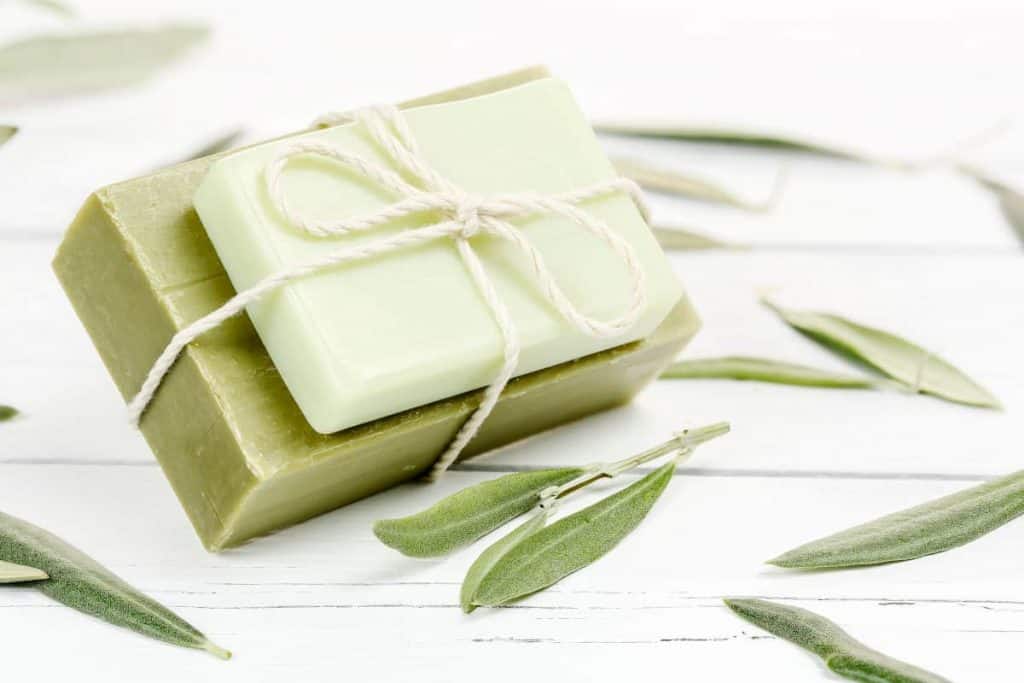
Credit: Yay Images
Yoni soap bar recipe?
If you’ve read this entire article, you would know that you really just need warm water to keep your vulva clean. But, if you want to use something extra, a mild, unscented soap is fine.
And if you’re a DIY soaper, you probably are itching to make your own bar of mild soap for your female parts (or for your female friends)!
For an ultra mild soap, a DIY yoni soap bar, go with zero scents and no artificial colorants.
Select mild, yet conditioning oils as a soap base.
Rich in vitamin E, olive oil is a great choice. It’s highly conditioning and moisturizing, and is a common base oil for bars of soap for sensitive skin.
I would try using a pure olive oil soap bar, also known as Castile soap.
👉We have a DIY olive oil soap recipe here.
Olive oil doesn’t produce much lather on its own, so don’t expect a lot of bubbles. Keep in mind that a pure olive oil soap requires extra time to harden and cure—some like to cure it for several months!
Or, you could buy liquid Castile soap which contains olive oil. Some brands contain olive oil along with a blend of vegetable oils such as coconut oil, hempseed oil, or sunflower oil.
If you’re looking for the perfect yoni soap mold, Etsy has you covered. Lol!
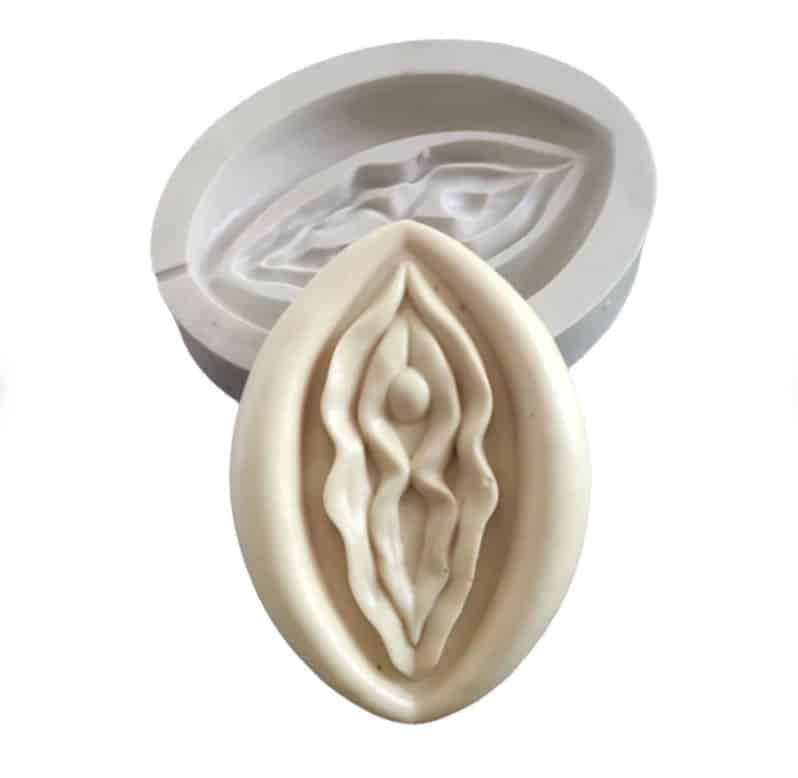
The final word on yoni soap bars
Nature designed your vagina to be self-cleaning. The consensus from medical experts is that warm water is all you really need to effectively clean your vulva. Using any additional soaps, sprays, or beads is unnecessary. (You could top up your cleansing routine by using a very mild, unscented soap.)
Don’t believe the hype that marketers are trying to sell you about commercially made yoni soap bars. They can’t: tighten your vagina, detox the womb, or ease menopausal symptoms. They can perhaps give you an itchy rash (if you use one with lots of artificial fragrance or dyes).
If you want to make your own natural bar, ensure you keep it unscented, uncolored, and free of botanicals that might scratch your sensitive parts.
New to making soap? 🧼❓
👉We have a fantastic overview on the whole soapmaking process here: read our Timeless Guide To Soapmaking.
If you would like to see our soapmaking posts organized by topic type, see our Soapmaking Collection.

References
- Mayo Clinic Health System, You don’t need fancy products for good feminine hygiene, https://www.mayoclinichealthsystem.org/hometown-health/speaking-of-health/you-dont-need-fancy-products-for-good-feminine-hygiene. Accessed December 2021.
- Britannica, Yoni, https://www.britannica.com/topic/yoni. Accessed December 2021.
- University of Rochester Medical Center, Anatomy of the Vulva, https://www.urmc.rochester.edu/encyclopedia/content.aspx?contenttypeid=34&contentid=19522-1. Accessed December 2021.
- Cowley, Jenny and Charlsie Agro (10 November 2019). “Health Canada bars sale of vaginal detox products following marketplace investigation,” CBC News. Accessed December 2021.
- WebMD, What Is Vaginal pH Balance? https://www.webmd.com/women/what-is-vaginal-ph-balance. Accessed December 2021.
- Martino, Jenny L, and Sten H Vermund. “Vaginal douching: evidence for risks or benefits to women’s health.” Epidemiologic reviews vol. 24,2 (2002): 109-24. doi:10.1093/epirev/mxf004
- Office on Women’s Health, Douching, https://www.womenshealth.gov/a-z-topics/douching. Accessed December 2021.
- Kassel, Gabrielle (20 April 2021). “How to Manage Discharge and Other Side Effects After Yoni Steaming,” Healthline. Accessed December 2021.
- Cleveland State University, Feminine Hygiene, https://www.csuohio.edu/health/feminine-hygiene. Accessed December 2021.

Author: Theresa Tesolin
Theresa is co-founder of RusticWise. She helps people unleash their inner DIY spirit by encouraging them to get dirty and make or grow something from scratch.

